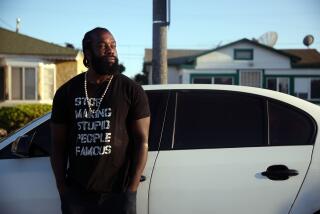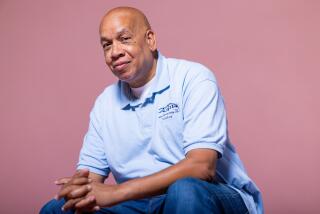Salinas tries a new tack in the fight against gangs: fasting
Plagued by gang violence for years, the city of Salinas has taken the standard approaches: beefed-up police patrols, court injunctions, parenting classes, high-minded gatherings of experts.
But with more gang-related homicides so far this year than in all of 2007, officials in the agricultural city south of San Jose have started thinking more unconventionally. A few months ago, they sought the help of the city’s grandmothers to keep kids out of gangs.
And this week, at the urging of Mayor Dennis Donohue, they launched what is very likely a first in the lengthy annals of municipal anti-gang measures: a community-wide fast.
The skeptics are legion.
“Believe it or not, the mayor’s plan is already working. . . . It’s a miracle!” quipped a reader on the website of the Californian, Salinas’ daily newspaper. “I am worried, however, that the lines between church and state of hallucination are starting to blend.”
Another reader likened the idea to fighting the wildfires in nearby Big Sur by calling for a rain dance.
But Donohue, a Salinas native who has become one of the biggest U.S. growers of radicchio, is undeterred.
“People say that fasting couldn’t possibly work, but the evidence suggests otherwise,” he said. “Gandhi and Cesar Chavez used it quite effectively.”
In league with a coalition of local clergy, Donohue has handed out more than 1,000 “Fasting for Peace” buttons. Since Monday, when the fast week began, the bells of some churches have been rung at 10 a.m. in observance of their worshipers’ self-imposed privations. Nobody knows how many people are taking part, but -- with support from dozens of congregations -- estimates run into the hundreds.
Donohue has defined fasting as giving up some sustenance, but not necessarily all of it. He has confined himself to one meal: lunch. At least one council member is also participating, as is the city’s police chief.
The mayor said he does not expect success to be immediate or total.
“Our goal is to have a peaceful, secure city,” Donohue said. “If you saw a headline about a gang shooting in Carmel, you’d be shocked. If you see one about a killing in Salinas, you’d say, ‘Well, that’s Salinas.’ I want to create an atmosphere where we too would be shocked.”
So far this year, 15 people have died in gang-related homicides in the city of 150,000, authorities say. In all of last year, there were 14. Other indicators are equally grim: About 75 to 100 drive-by shootings occur annually, a rate that has held steady for years, according to Police Chief Daniel Ortega.
“We’ve done every kind of analysis you can do,” Ortega said. “There are any number of reasons: retaliation, fights over girlfriends, drug deals gone bad, someone just getting out of prison and wanting to make his bones back in town.”
But authorities have yet to come up with a definitive explanation for the dramatic jump in fatal attacks.
The chief said he has cut back his food consumption in support of the fast.
“It can’t be anything but positive,” he said. “It tells the public that there’s nothing we won’t do to address this problem.”
On the fourth day of his all-liquid diet, the Rev. Frank Gomez agreed. The driving force behind the idea, Gomez said Thursday that at least 20 clerics and some of their congregants plan to extend their fasting past its official end Sunday afternoon. All who participated will gather at a church and receive thanks from the mayor. Those who have had enough fasting will “share in a holy meal,” said Gomez, who made his living as an IBM software engineer before entering the ministry. “The outcome we’ve already seen is a coming together of the community,” he said.
Although nobody would argue about the seriousness of the city’s gang problem, the community is hardly of one mind on the fast.
A few critics have cast the mayor, who is so far running unopposed for reelection, as a hypocrite for deeply involving himself with the religious community even as he supports a proposed card room and a gay pride parade.
Even so, he speaks of “broadening the dialogue” and urging other gang-ridden California cities to sponsor fasts of their own.
“I’ve been blogged around pretty good,” he said. “But even when people are skeptical about the fast or make fun of it, the fact that we’re talking has value.”
More to Read
Sign up for Essential California
The most important California stories and recommendations in your inbox every morning.
You may occasionally receive promotional content from the Los Angeles Times.











